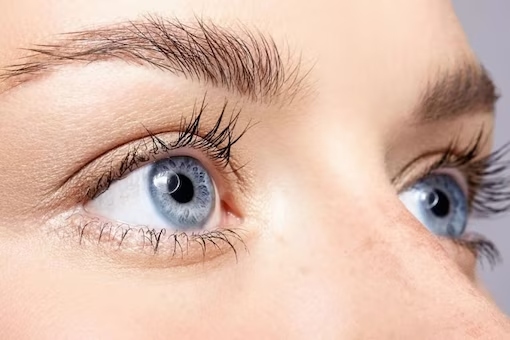Did you know that the fastest muscle in the human body isn’t in your legs, but in your eyes? That’s right! There are six eye muscles constantly working to re-adjust your eyeballs, ensuring you catch all the details. Our eyes, the unsung heroes, play a crucial role in our daily activities and are indispensable sense organs.
In our fast-paced world, the demand for close and intermediate visual tasks has surged, especially with extended hours of computer work in corporate settings. The widespread use of smartphones, particularly among the youth, further intensifies this trend. Factors contributing to eye fatigue encompass issues like inadequate lighting, prolonged screen time, imbalanced diet, suboptimal eye movements, extended working hours, psychosocial and emotional stress, and the natural aging process. It’s crucial to address these aspects for comprehensive eye health in our contemporary lifestyles.
Millions of people around the globe today hence suffer from overworked and strained eyes. And just like every other muscle in the body, it’s important to keep the eye muscles strong. Thus, proper diagnosis and treatment plan should be done along with exercises and balanced diet plan to improve the quality of life, otherwise this may lead to strabismic anomalies, computer vision syndrome, headaches, dry eyes and various other disorders. Let’s address the demon in the room!
Computer Vision Syndrome (CVS) has emerged as one of the most prevalent eye disorders in the modern era. This syndrome encompasses a group of eye and vision related disorders resulting from the prolonged use of computers, laptops, tablets and cell phones. As our dependence on digital devices has skyrocketed, so has the incidence of computer vision syndrome (CVS).
The eyes may be the mirrors of the mind but they’re also one of the most misunderstood parts of the body. Like physical exercise strengthens and de-stresses the body from fatigue, similarly the following recommended exercises help counterbalance the effects of eyestrain. These exercises are based on techniques followed by ophthalmologists. They do not necessarily address any eye disease or condition, but they do help you in nurturing healthier eyes.
- Take a BreakThe 20-20-20 Rule! Break free from digital eye strain. For every 20 minutes of screen time, shift your focus to something 20 feet away for a refreshing 20 seconds. Whether it’s work, television, or screen-scrolling, your eyes deserve a breather. Embrace the 20-20-20 rule for healthier and happier eyes!
- BlinkBlinking is a simple yet powerful exercise to keep your eyes lubricated and helps to even helps clean. Sit comfortably, relax, focus and blink your eyes rapidly for 20 to 30 seconds continuously. This exercise helps in even tear distribution. It may sound obvious, but make sure you’re blinking frequently.
- Flex your FocusHold one arm straight out in front of you at the level of your eyes, with the thumb pointing up. Now focus on the thumb for 10-15 seconds. While keeping your eyes trained on it, slowly move the thumb toward your nose until you can no longer focus clearly on it. Pause and take a deep breath or two. Extend your arm back again to its original outstretched position, while maintaining your focus on the thumb. Repeat the same activity for 5-10 times and proactively engage once in a day.
- PalmingTrust us on this! Palming is a gentle yoga exercise that soothes and relieves tired eyes and reduces eye strain. Rub your hands together to generate warmth and energy and place them over your closed eyes, blocking out light. Gently place them lightly over your closed eyes. Take a few deep breaths as you start to relax. Feel the warmth seep into your eyes, relaxing the muscles and easing any discomfort. Repeat the same activity twice and rest. Doing this reduces the stimuli to your eyes and brain, giving them a chance to relax.
- Roll your EyesSlowly roll your eyes counter clockwise and clockwise. Eye rolling is an effective exercise when done regularly. This exercise helps to strengthen the eye muscles.
- Prevention is Better than Cure protecting your eyes is crucial for an overall wellbeing and a proactive approach is the key to mitigate eye strain and potential issues. You don’t have to live with discomfort. Let sight be delightful!
Additionally, let us try and make subtle changes to our lifestyle to improve eye health and minimise the risks of developing eye disorders. Some tips would be to restrict screen time, eat right for good sight, exercise regularly, get a good night sleep, work under optimum lighting conditions always, do not smoke, use protective glasses, drink plenty of water, maintain eye hygiene and last but not the least, a periodic eye check-up or examination is an essential health check.


